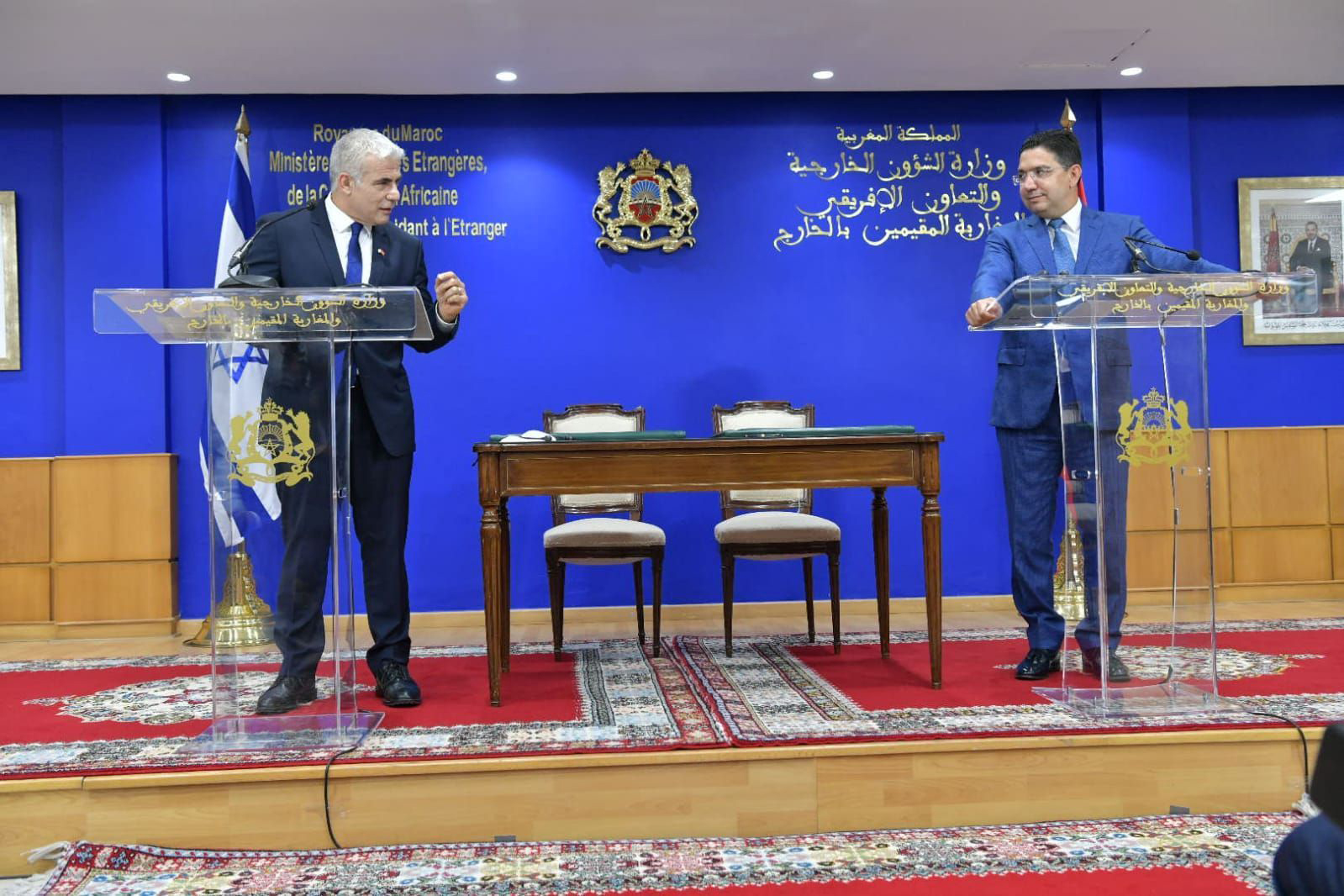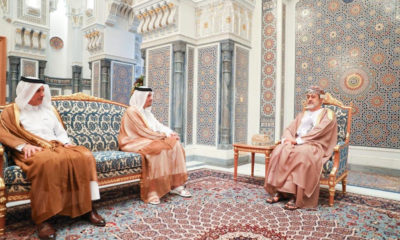
World

Abraham Accords have low-profile birthday
(JTA) The Biden administration didn’t exactly call attention to the anniversary of the Abraham Accords, the historic co-operation agreements between Israel and several of its Arab neighbours signed on 13 August 2020. In fact, the administration’s spokespeople still won’t even use the term “Abraham Accords”. That’s likely in part because the agreements were a foreign policy win for Donald Trump’s team, and because Biden is prioritising other initiatives at the moment such as combating the latest COVID-19 case surge and addressing the fallout in Afghanistan.
“We welcome and support the normalisation agreements between Israel and countries in the Arab and Muslim world,” a state department official said last week, responding to a JTA query about the status of the accords. “The United States (US) will continue to encourage other countries to normalise relations with Israel.”
The degree to which the normalisation agreements are thriving varies from country to country, and for the moment it doesn’t look like there are any imminent new members of the club. But experts and peace-brokers say that the deals are here to stay.
The Trump administration negotiated incentives for three of the four countries that normalised relations with Israel. These are in place – for now.
- The US agreed to sell the United Arab Emirates (UAE) state-of-the-art F-35 stealth fighter jets, which some – including (for a time) former Israeli Prime Minister Benjamin Netanyahu – believed could weaken Israel’s “qualitative military edge” in the region.
- The US agreed to recognise Morocco’s claim to rule over disputed territory in the Western Sahara.
- The US removed Sudan from listings identifying the country as a terrorism sponsor. Sudan had landed on the list after harbouring the mastermind of the September 11 attacks, Osama bin Laden.
The human-rights community immediately targeted all three of those incentives. They had compelling arguments:
- The UAE has acted as a sometimes malign interventionist actor in the region, most recently joining Saudi Arabia in backing the Yemen government in a devastating war against Houthi rebels who are backed by Iran.
- Recognising Morocco’s claim to an area it has claimed by force was seen as undercutting efforts to counter other expansionist bids, for instance, Russia’s effective annexation of Crimea.
- While the government of Sudan rejects everything its predecessors stood for, the families of victims of the September 11 attacks are still pressing for compensation.
Biden has so far kept all of them intact. At first, he froze the UAE F-35s deal, but then recommitted to it, in part because the pro-Israel community, which had joined the opposition to the deal, dropped its objections. The Biden administration has said that reversing the Western Sahara recognition is off the table for now. And Secretary of State Antony Blinken has accepted the terms of the Sudan deal, accepting payment for victims of some acts of terrorism Sudan facilitated in the 1990s and preserving the right of victims of the 9/11 attacks to continue their quest for compensation.
The UAE deal is the biggest success of the four, and Israel and the UAE have already exchanged official ambassadors. This isn’t in any sense a low-profile bromance: the UAE has rolled out the red carpet for top Israeli officials, including Israeli Foreign Minister Yair Lapid.
Commercial ties are also thriving. A massive UAE investment in Israel’s offshore natural gas extraction is going ahead. Tens of thousands of Israelis visited the UAE in the months after the signing. A kosher food industry is blossoming in Dubai.
There is still one important point of tension: Israel’s military actions against the Palestinians. Before the latest round of fighting between Israel and Hamas in May, the UAE criticised Israel’s crackdown on Palestinians protesting evictions in eastern Jerusalem.
Bahrain, which houses a Jewish community that’s more than a century old and which has had quiet relations with Israel and the pro-Israel community since the 2000s at least, didn’t need a lot of convincing to buy into the accords. Two months after the signing, Bahrain’s commerce minister was in Jerusalem formalising already existing commercial ties.
Bahrain has named an ambassador to Israel, but unlike the UAE, hasn’t yet established an embassy in Israel.
Morocco was always seen as the easiest get: there’s a huge Moroccan Jewish community in Israel that has since the 1990s travelled back to the country on pilgrimages. And of the four countries in the accords, it has the largest remnant Jewish community. A number of Moroccan Jews are advisers to King Mohammed VI. Morocco and Israel have existing commercial and, reportedly, security ties.
The countries have so far exchanged envoys, and have launched for the first time ever direct commercial flights.
But there have been some hiccups, a consequence, in part, of uncertainty for a period about how Biden would treat the recognition of the Western Sahara.
Another factor impeding a full-fledged mutual embrace has been the country’s elected government, which is more Islamist than the royal court.
Yasmina Abouzzohour, a visiting fellow at the Brooking Center in Qatar and an expert on Morocco, said the pluses were the economic ties, the concomitant strengthening of ties with the US, and the potential for Morocco to have a bigger role in helping bring about a resolution of the Israeli-Palestinian conflict. But she said the average pro-Palestine Moroccan citizen wasn’t thrilled about the relationship.
Sudan is another country that has long had sub rosa ties with Israel – it played a critical role in the 1980s in the wave of Ethiopian Jewish immigration.
Right now, its deal with Israel is stuck as the two sides hash out details, not because any of the parties are having second thoughts. Sudan’s government is contending with internal tension as it transitions to democracy.
Who’s next?
The big domino that could lead to a cascade of mutual recognition in the Arab and Muslim worlds is Saudi Arabia.
But that’s not likely to happen soon. Legislators in Congress, mostly Democrats but a number of Republicans as well, see the country as toxic because of its human-rights abuses, including its murder of a US-based journalist in 2018, and because of its Yemen war interventions. That said, there are a number of countries that already have informal ties with Israel that could easily transition to full-blown ties, among them Oman, Mauritania, Indonesia, and Qatar.








